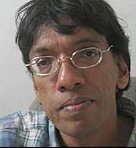Election Victory Provides Space To Govt To Deal With Geneva Resolution

By Jehan Perera -March 31, 2014
Once again the government swept to a comfortable victory at the provincial council elections in the Western and Southern provinces far outstripping its main rival, the UNP, by huge margins virtually everywhere except for Colombo city where the ethnic and religious minority vote predominates. Both provinces that the government retained control over are important ones. The Western Province, which includes Colombo, is the most populous and prosperous one by far, accounting for over a quarter of the country’s population and a half of its national income. The Southern Province has gained in importance during the tenure of President Mahinda Rajapaksa, whose ancestral home is located there. The Hambantota district from which the presidential family hails has witnessed unprecedented economic development that includes a gigantic new harbor and airport.
The political shrewdness of the government ensured that the elections to the two provinces were timed to coincide with the vote on Sri Lanka at the UN Human Rights Council in Geneva. The day after the vote in Geneva, and just prior to the provincial elections, the main opposition party, the UNP, issued a statement that said “It is now crystal clear that the government set the date for the Western and Southern Provincial elections for March 29, in the full knowledge that it would face a resounding humiliation in the international arena two days earlier. It is nothing short of despicable that the Rajapaksa administration has chosen to turn a major crisis facing Sri Lanka internationally into a political rallying point in order to consolidate power.” The US-sponsored resolution in Geneva was passed by a margin of 23 to 12 with 12 abstentions.
During the election campaign government members made it clear that they wanted the voters to deliver a strong verdict in their favour in order to combat the UNHRC resolution. The government’s campaign was two-pronged. It emphasized that the resolution sought to punish the leaders of the government and army who had defeated the LTTE and preserved the unity of the country. The shooting of a policeman that occurred in the North during the campaign period, and heightened security measures including arrests of human rights activists and cordon and search operations in the northern part of the country, became reminders of times past. The seemingly inexplicable arrest of two internationally known human rights defenders was perhaps for this purpose. It was used to make the point that the country needed a strong government at this point of time when it was being besieged from both within and without. Read More

